TEST Page – CARE
1 Examples of Our Work
CARE research spans various content areas, including topics such as student-centered curriculum and instruction, civics education, K-12 children’s educational experiences during and after COVID, the impact of pandemic-induced school disruptions on English language learners, and the impact of whole-school reform models on student outcomes. Below we provide some examples of our work.
-
As a result of the COVID-19 pandemic, students across Texas had limited and disrupted access to typical educational contexts and services during the 2020-21 school year. Changes to remote or hybrid instruction raise risks for student progress and learning, especially for English learner students, who need extensive opportunities to practice speaking and hearing English to develop English oral language proficiency as well as literacy skills. In partnership with American Institutes for Research, Gibson Consulting Group, and the Texas Education Agency(TEA) as part of the Southwest Regional Education Laboratory, we found that rates of reclassification from an English learner student to an English proficient student declined between 2017/18 and 2020/21, and trends in the characteristics of reclassified students changed. Of students reclassified to English Proficient during that period, fewer were a) enrolled in major urban areas, b) eligible for the National School Lunch Program, c) coming from homes where Spanish is the first language, and d) identified as Hispanic. In other words, students being reclassified as English Proficient were more likely to come from non-urban areas, be from higher income households, speak languages other than Spanish, and not be Hispanic but be from another race/ethnicity. Regarding English proficiency, we found that English learner students in elementary grades in 2020/21 earned meaningfully lower scores on the listening, speaking, and reading domains of the Texas English Language Proficiency Assessment than similar students earned before the pandemic, particularly in speaking. The findings for secondary grades were mixed; middle school students earned lower scores in listening, and high school students earned higher scores in speaking. Leaders at the Texas Education Agency and Texas school districts could consider focusing recovery resources on elementary schools and to some degree on middle schools and identifying and supporting evidence-based strategies to cultivate proficiency. The Texas Education Agency may consider studying the effect of program models on language proficiency and the relationship between reclassification, shifting English proficiency levels, and changing reclassification standards. Read more about this study here.
-
Since 2014, the University of Southern California Dornsife Center for Economic and Social Research has administered the Understanding America Study (UAS). The UAS is a longitudinal, national probability-based panel of approximately 13,000 U.S. residents, collecting information at multiple time points each year on economic, attitudinal, health, political, and other measures. CARE researchers pose questions at regular intervals to the over 2,000 panel households with at least one child in grades K-12 asking about children’s educational experiences, and to the full sample about attitudes and opinions around public education more generally.
Journal articles
- Disparities in Educational Access in the Time of COVID: Evidence From a Nationally Representative Panel of American Families (AERA Open)
- The Impact of a Messaging Intervention on Parents’ School Hesitancy During COVID-19 (Educational Researcher)
- Silver, D., Polikoff, M., Saavedra, A., Garland, M., Haderlein, S., & Rapaport, A. (2022). The Subjective Value of Postsecondary Education in the Time of COVID: Evidence from a Nationally Representative Panel. Peabody Journal of Education. 97 (3), 344-368.
Reports
- The Kids Are All Right? What Parents Really Think About How COVID Affected Children (USC EdPolicy HUB, December 2023)
- A House Divided? What Americans Really Think About Controversial Topics in School (USC Dornsife CESR / USC Rossier, October 2022)
Example policy impact
Presentations
Electronic articles
- Many families don’t know how much the pandemic harmed their child’s learning; that’s a problem (EdSource)
- Two Percent of U.S. Children Receive High Quality Tutoring, Despite Billions Funneled into School Systems (Evidence Base)
- National Survey Findings Shed Light on Dimensions of Teen Mental Health Concerns (Evidence Base)
- Lines Have Been Drawn, A Loud Minority Has Been Heard, Now What? (Harvard Usable Knowledge )
- Opinion: How most Americans don’t believe young kids should read or learn LGBTQ themes (The Hechinger Report)
- ‘Channeling the Mama Bear’: How Covid Closures Became Today’s Curriculum Wars (New York Times)
- Most Americans Think Parents Should Be Able to Opt Their Kids Out of Learning Things They Disagree With. That’s Terrifying (Time Magazine)
- Must we battle over civics education? (Fordham Institute)
- Americans broadly support teaching about (most) controversial topics in the classroom (Brown Center Chalkboard)
- Deep Partisan Divide Over LGBTQ+ Content in Schools (Yahoo News)
- Americans divided on LGBTQ representation in high school curriculum (The Hill)
- Parents want high schoolers to learn both sides of controversial issues (Spectrum News)
- Low parent interest in COVID-recovery interventions should worry educators and policymakers alike (Brookings Brown Center Chalkboard)
- Both supply and demand for COVID-Related academic and social Interventions are insufficient to address the negative effects of the pandemic (Urban Institute)
- Support for Mask and Vaccine Policies in Schools Falls along Racial and Political Lines (Urban Institute)
- Are fiery school-board meetings representative of all parents? (Brookings Brown Center Chalkboard)
- With Students Back in School, Latest Data Finds Parental Support for State Testing Rebounding (74million)
- Concerns about child well-being during the 2020-21 school year were greatest among parents of remote learners (Brookings Brown Center Chalkboard)
- Tutoring, Summer School, Pods — Survey Finds Parents Aren’t So Thrilled About Most K-12 COVID Recovery Solutions on the Table (74million)
- Why some parents are sticking with remote learning—even as schools reopen (Brookings Brown Center Chalkboard)
- Almost everyone is concerned about K-12 students’ academic progress (Brookings Brown Center Chalkboard)
- For Schools To Open in Spring 2021, Teachers and Students Need to Mask Up (Education Next)
- Evidence of COVID-19’s Impact on K-12 Education Points to Critical Areas of Intervention (Evidence Base)
- Surveys show things are better for students than they were in the spring—or do they? (Brookings Brown Center Chalkboard)
- Matching supports to student needs: Survey results highlight where schools, policymakers can help (Evidence Project CRPE)
- Getting Testy about Testing — K-12 Parents Support Canceling Standardized Testing this Spring. That Might Not Be a Good Idea (74million)
- OPINION: The truth about returning to school? There’s no easy answer (Hechinger Report)
- Parents’ Perspectives on the Effects of COVID-19 on K-12 Education, April-July 2020 (Evidence Base)
- The Families Talking—and not Talking—with Children About Racism (FutureEd)
- Beyond Policing, We Also Must Address Black-White Educational Disparities (Medium)
- Students without computers are having a rougher time with the new normal. damircudic/Getty Images Not all kids have computers – and they’re being left behind with schools closed by the coronavirus (The Conversation)
| Knowledge in Action Efficacy Study
CARE researchers, along with partners at Penn State University and Gibson Consulting Group, used a randomized controlled trial to evaluate the Knowledge in Action (KIA) project-based learning (PBL) approach to Advanced Placement (AP). The study found that KIA students outperformed non-KIA students on AP exams, including within subgroups. Though the shift to PBL required considerable pedagogical changes, teachers and students perceived benefits beyond AP performance, and the majority of teachers planned to continue using PBL after the study. The pattern of results was consistent for two years and in two courses, AP U.S. Government and AP Environmental Science. Results support teacher-driven adoption of KIA for students from both lower- and higher-income households, and in both courses. (From Saavedra et al, 2021) |
Stanford Civic Online Reasoning National Portrait
In partnership with the Stanford History Education Group (SHEG) and Gibson Consulting Group, CARE researchers administered an assessment to more than 3,000 students in 16 districts across the country. Districts varied by region, urbanicity, size and demographic composition to create a sample approximating the demographic profile of high school students across the United States. The SHEG-developed assessment gauged students’ ability to evaluate digital sources on the open internet. Nearly all students floundered. Ninety percent received no credit on four of six tasks. These results informed SHEG’s development of curriculum designed to teach U.S. students how to be critical consumers of online information. Journal article and reports: |
| Generation Citizen Efficacy Study
In partnership with NORC at the University of Chicago the purpose of this study is to learn how to improve equity-focused civics education. Funded by the Institute of Education Sciences’ Education Research Grants program, this randomized controlled trial study seeks to provide rigorous evidence of the impact of the Generation Citizen (GC) “action civics” curriculum on students’ critical thinking, civic knowledge, engagement, and behavior (i.e., 2022 midterm voting), and engagement with learning. Working in partnership with two diverse, large, urban school districts in the US, our study evaluates implementation, cost effectiveness, and impact. Results will inform educators’ and policymakers’ decisions regarding whether and how to implement civic education. |
Street Law Program Evaluation
In partnership with the Street Law Inc., the purpose of this study was to evaluate the implementation of Street Law’s “Rule of Law” curriculum, lessons, materials and professional learning program in one east-coast school district as well as among teachers from various other nearby districts. Funded by the Annenberg foundation, our evaluation examined changes in students’ understanding of the concept of “Rule of Law” gained through Street Law’s “Rule of Law” curriculum, as well as participating teachers’ experiences and perceptions of student engagement. Results are informing continued program development, associated professional development, and may lead to a subsequent impact study. Read more about this study here. |
| Evaluation of Virginia’s Governor’s STEM Academies
In partnership with the University of Virginia’s Weldon Cooper Center for Public Service, our team evaluated the state of Virginia’s Governor’s STEM Academies, a collection of more than 20 programs designed to increase students’ access to STEM curriculum and, ultimately, careers. In this study, our activities included using novel data extraction techniques to transform academies’ original application documents into manipulable and analyzable data. The research team combined these data with current administrative records from Virginia’s state longitudinal data system to investigate how academies’ course and credential offerings have evolved to meet the demands of Virginia’s employers, and the academic and career interests of students.
|
Evaluation of a State-defined Restart Strategy for Low-performing Schools in Texas
Beginning with the 2017-18 school year, the Texas Education Agency (TEA) established grant programs to provide financial support to Title I schools. The purpose of the grants is to design and implement strategic school improvements. One whole-school improvement model, “School Restart,” requires schools to develop a new academic program and replace school leadership and instructional staff. This study, in partnership with American Institutes for Research, Gibson Consulting Group, and TEA as part of the Southwest Regional Education Laboratory, is conducting an evaluation of the effects of school restart on student, teacher, and principal outcomes. The study will provide evidence on whether school restart improved student and educator outcomes, and whether the characteristics of students and staff changed after implementation. Read more about this study here. |
| Buffalo Urban Teaching Fellows Evaluation
Funded by The Cullen Foundation, the purpose of this study is to evaluate the implementation and effectiveness of the Buffalo Urban Teaching Fellows (BUTF) residency educator preparation program. In partnership with four local colleges and TNTP, The Cullen Foundation is providing residency stipends (up to $15,000 in tuition assistance per resident) for aspiring teachers to learn through paid positions in schools while they pursue educator certification and transition to a teaching career. Our study will examine the extent to which the BUTF program successfully recruits local teachers to earn credentials and teach in local Buffalo schools, and whether the preparation received through the residency model is successful in preparing teachers for the classroom. |
New Tech Network – Case Study of Project-Based Learning Teaching and Learning
The purpose of this study was to describe the teaching and learning of high school students in two New Tech Network (NTN) high schools, contextualized within the most recent literature on project-based learning (PBL) and workforce-aligned skills. Both schools use a whole-school project-based learning model. One is mature, currently in their 13th year of operation, and a small magnet school. The other, new in its second operational year at the time of the study, is a large comprehensive high school. Our case study research approach included interviews, focus groups, observations, document review, and surveys to understand common successes, challenges, areas for improvement and opportunities for sharing successes. Emerging themes included broad consensus supporting PBL’s benefits for students, teachers’ need for more and different professional learning supports and materials, and the facilitative nature of the whole-school approach, among others. |
| Evaluation of Pittsburg Public Schools’ (PPS) B.O.O.S.T. Summer Learning Program
In partnership with Gibson Consulting Group, Inc. and the Office of Child Development (OCD) at the University of Pittsburg, our team is examining the implementation and impact of PPS’ summer learning program. Through site visits to summer programs, conversations with participating staff, and student surveys, our qualitative research activities will examine how BOOST is implemented, what experiences students have, and how well BOOST programming is meeting identified students’ needs. We will identify strengths of summer BOOST programming and look for areas to improve or strengthen potential areas of weakness. With longitudinal student administrative data, our quantitative research activities will seek to answer whether, and to what extent, participation is associated with improved reading and math performance on standardized, interim benchmark assessments. Quantitative analyses will also examine whether impacts vary by BOOST location, and whether program effects are related to program dosage, measured by the frequency of BOOST summer attendance. Our team will integrate the qualitative and quantitive findings to provide a more holistic understanding of student experiences and outcomes associated with BOOST participation. |
Ongoing Reporting on Key Education Topics
Center for Reinventing Public Education: In support of researchers at the Center for Reinventing Public Education at Arizona State University, CARE researchers create a biweekly newsletter aimed at synthesizing key developments in pandemic learning recovery and student wellbeing for non-academic audiences. In addition, CARE researchers have compiled and contributed to consensus reports on key issues in education. Intended for policy and practitioner audiences, these reports review and compile research findings in an area of particular policy relevance |
2 Examples of Our Work
CARE research spans various content areas, including topics such as student-centered curriculum and instruction, civics education, K-12 children’s educational experiences during and after COVID, the impact of pandemic-induced school disruptions on English language learners, and the impact of whole-school reform models on student outcomes. Below we provide some examples of our work.
3 - Examples of Our Work
-
Knowledge in Action Efficacy Study
CARE researchers, along with partners at Penn State University and Gibson Consulting Group, used a randomized controlled trial to evaluate the Knowledge in Action (KIA) project-based learning (PBL) approach to Advanced Placement (AP). The study found that KIA students outperformed non-KIA students on AP exams, including within subgroups. Though the shift to PBL required considerable pedagogical changes, teachers and students perceived benefits beyond AP performance, and the majority of teachers planned to continue using PBL after the study. The pattern of results was consistent for two years and in two courses, AP U.S. Government and AP Environmental Science. Results support teacher-driven adoption of KIA for students from both lower- and higher-income households, and in both courses. (From Saavedra et al, 2021)Generation Citizen Efficacy StudyIn partnership with NORC at the University of Chicago the purpose of this study is to learn how to improve equity-focused civics education. Funded by the Institute of Education Sciences’ Education Research Grants program, this randomized controlled trial study seeks to provide rigorous evidence of the impact of the Generation Citizen (GC) “action civics” curriculum on students’ critical thinking, civic knowledge, engagement, and behavior (i.e., 2022 midterm voting), and engagement with learning. Working in partnership with two diverse, large, urban school districts in the US, our study evaluates implementation, cost effectiveness, and impact. Results will inform educators’ and policymakers’ decisions regarding whether and how to implement civic education.Evaluation of Virginia’s Governor’s STEM Academies
In partnership with the University of Virginia’s Weldon Cooper Center for Public Service, our team evaluated the state of Virginia’s Governor’s STEM Academies, a collection of more than 20 programs designed to increase students’ access to STEM curriculum and, ultimately, careers. In this study, our activities included using novel data extraction techniques to transform academies’ original application documents into manipulable and analyzable data. The research team combined these data with current administrative records from Virginia’s state longitudinal data system to investigate how academies’ course and credential offerings have evolved to meet the demands of Virginia’s employers, and the academic and career interests of students.Stanford Civic Online Reasoning National Portrait
In partnership with the Stanford History Education Group (SHEG) and Gibson Consulting Group, CARE researchers administered an assessment to more than 3,000 students in 16 districts across the country. Districts varied by region, urbanicity, size and demographic composition to create a sample approximating the demographic profile of high school students across the United States. The SHEG-developed assessment gauged students’ ability to evaluate digital sources on the open internet. Nearly all students floundered. Ninety percent received no credit on four of six tasks. These results informed SHEG’s development of curriculum designed to teach U.S. students how to be critical consumers of online information.
Journal article and reports:- Students’ Civic Online Reasoning: A National Portrait (Educational Researcher)
- Students’ Civic Online Reasoning: A National Portrait (SSRN)
Street Law Program Evaluation
In partnership with the Street Law Inc., the purpose of this study was to evaluate the implementation of Street Law’s “Rule of Law” curriculum, lessons, materials and professional learning program in one east-coast school district as well as among teachers from various other nearby districts. Funded by the Annenberg foundation, our evaluation examined changes in students’ understanding of the concept of “Rule of Law” gained through Street Law’s “Rule of Law” curriculum, as well as participating teachers’ experiences and perceptions of student engagement. Results are informing continued program development, associated professional development, and may lead to a subsequent impact study. Read more about this study here.Evaluation of a State-defined Restart Strategy for Low-performing Schools in Texas
Beginning with the 2017-18 school year, the Texas Education Agency (TEA) established grant programs to provide financial support to Title I schools. The purpose of the grants is to design and implement strategic school improvements. One whole-school improvement model, “School Restart,” requires schools to develop a new academic program and replace school leadership and instructional staff. This study, in partnership with American Institutes for Research, Gibson Consulting Group, and TEA as part of the Southwest Regional Education Laboratory, is conducting an evaluation of the effects of school restart on student, teacher, and principal outcomes. The study will provide evidence on whether school restart improved student and educator outcomes, and whether the characteristics of students and staff changed after implementation. Read more about this study here.
Funding Sources
We collaborate closely with professors and students from the USC Rossier School of Education as well as researchers nationwide. Foundations and federal sources have financially supported our work.
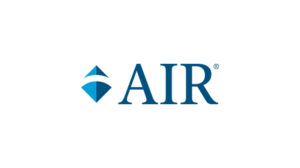 |
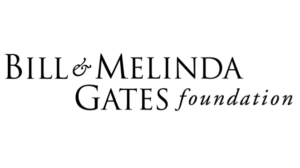 |
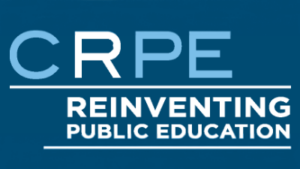 |
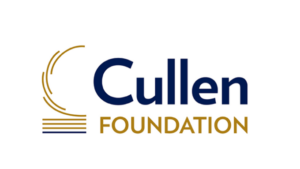 |
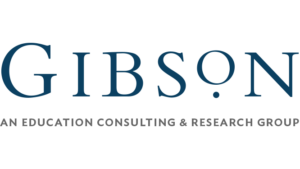 |
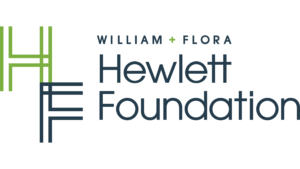 |
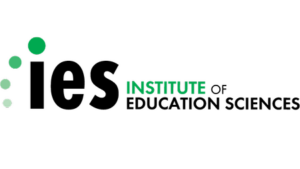 |
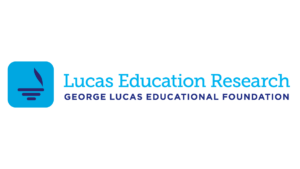 |
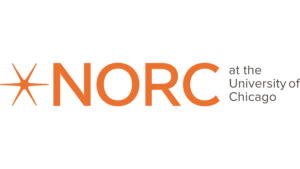 |
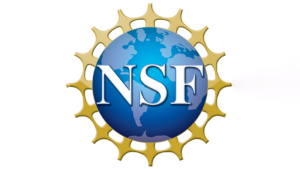 |
 |
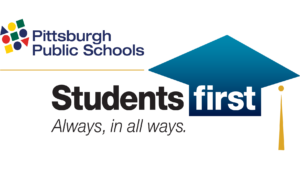 |
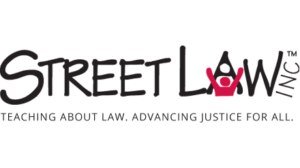 |
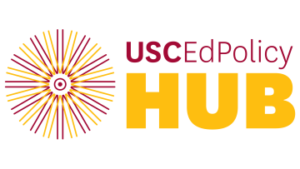 |
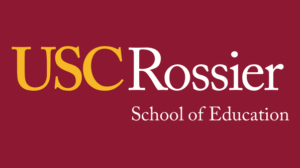 |
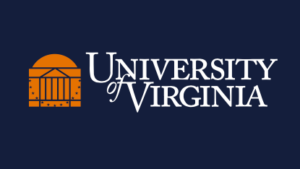 |